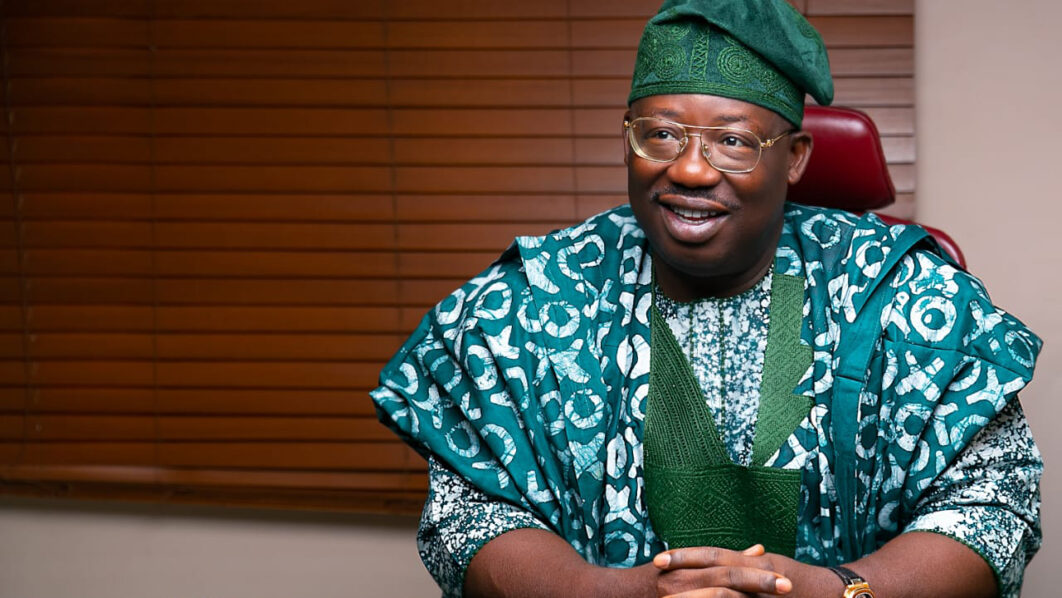The National Association of Chambers of Commerce, Industry, Mines, and Agriculture (NACCIMA) has called on President Bola Tinubu’s administration to take urgent and strategic measures to implement tax reforms that would foster economic growth and improve government revenue.
In a statement signed by the association’s National President, Dele Kelvin Oye, NACCIMA proposed a reduction in corporate taxes to 19% and the maintenance of the Value Added Tax (VAT) rate at 7.5%.
This suggestion counters the current Tax Reform Bills under consideration by the National Assembly, which propose a progressive increase in VAT rates from 10% in 2025 to 12.5% (2026–2029) and 15% from 2030 onward.
NACCIMA argued that lowering corporate taxes and maintaining a stable VAT rate would encourage investment, stimulate economic activities, and ultimately lead to higher tax revenues for the government.
“We believe corporate taxes should be further reduced to 19% and VAT pegged at 7.5%,” Oye stated. “This will grow the economy and result in higher tax revenues for the government. As a caveat to protect government revenues, each taxpayer must not pay less than the preceding tax year.”
Oye also raised concerns about the recurring disputes between federal and state governments over revenue sharing, describing them as a distraction from taxpayer interests.
“The ongoing media exchanges between federal and state governments in newspapers and press releases highlight the lack of coordination and consideration for the public interest,” he remarked.
He called for a more unified approach to revenue allocation that prioritizes the needs of taxpayers and the economy.
READ ALSO: Dele Oye calls for sustainable reforms at NACCIMA address
Highlighting the importance of targeted reforms, Oye emphasized the need to prioritize sectors such as telecommunications, which contribute significantly to government revenues.
He urged the government to engage in meaningful dialogue with stakeholders to unlock the growth and revenue potential of these sectors. “Significant taxpayers like the telecommunications sector require reforms that will increase tax revenues. Real dialogue with genuine concessions from all parties is essential,” Oye said.
NACCIMA also criticized the current practice of engaging stakeholders through committees that fail to produce meaningful outcomes.
Oye called for a more inclusive approach, involving private sector players from industries such as aviation, telecommunications, manufacturing, and Free Trade Zones.
“Committees that merely lecture taxpayers are not yielding positive results,” he noted. “For better coordination, the outcomes of these engagements should be forwarded to the National Assembly through the Attorney General’s office, as directed by the President.”
The proposed 2024 Tax Reform Bills are based on the recommendations of the Presidential Committee on Tax Reform, chaired by fiscal policy expert Taiwo Oyedele. The reforms consist of four bills aimed at overhauling Nigeria’s tax system:
NACCIMA urged the government to adopt a balanced and collaborative approach to tax reform, ensuring that policies support economic growth while safeguarding public and private sector interests.
Oye reiterated the need for transparency and genuine dialogue as the nation embarks on comprehensive tax reforms that could shape Nigeria’s economic future.

 Health6 days ago
Health6 days ago
 Entertainment1 week ago
Entertainment1 week ago
 Crime6 days ago
Crime6 days ago
 Education1 week ago
Education1 week ago
 Health1 week ago
Health1 week ago
 Comments and Issues7 days ago
Comments and Issues7 days ago
 Football1 week ago
Football1 week ago
 Latest7 days ago
Latest7 days ago

